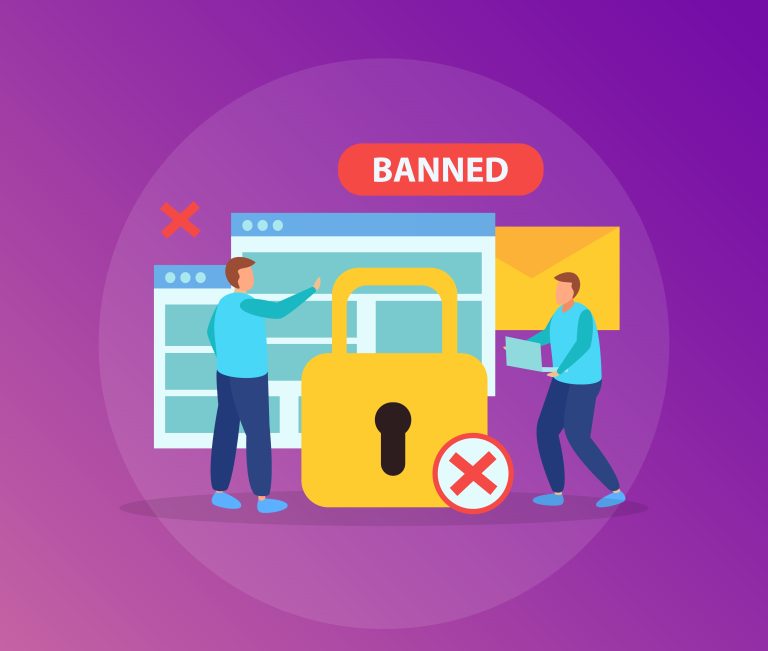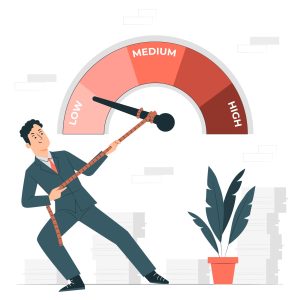Back in 1996, Sergey Brin and Larry Page of Google introduced the idea of PageRank. As a hierarchical algorithm, PageRank’s role was to find out a website’s authority based on the number of backlinks.
From 1996 to 2023, backlinks have come a long way. It has gone through countless updates to keep up with the ever-changing search trends.
Considering the important and indispensable role backlinking plays in SEO, it was only a matter of time before someone came up with shortcuts.
And it’s about these shortcuts that we’re going to discuss today. We’ll share 12 link building techniques that will get you into trouble.
Paying for Links
I am starting things off with paying for links since this is usually a mistake new link builders make.
Paying for links is exactly what it sounds like. You pay a specific amount to a site owner, who, in turn, will place your link on their website.
Google openly states in its Webmaster Guidelines that buying or selling links counts as a link scheme and will happily devalue websites that engage in this practice.
Irrelevant Links
Relevance is a huge thing when it comes to link building. If your website gets too many backlinks from websites outside your niche, Google will quickly flag it down.
Say, for example, that if you have a website about pet care and receive too many inbound links from tech sites, this is a case of unnatural links. You may be liable for manual action, and you should disavow these links immediately.
Content Marketing Links
The ethical practice of content marketing involves producing informative content on one’s own website, gaining authority, and, in turn, building resources that generate links via goodwill.
The sketchy version involves hiring a writer who will publish the written article on a third-party site with a link back to the client’s website. (The client here is the party that pays the writer.)
This isn’t link building; it’s advertising. And it violates FTC guidelines, which state that paid advertisements must be disclosed, and if they cannot be disclosed, then such ads shouldn’t exist.
Low-Quality Guest Posts
Guest posts are a great way to generate backlinks and are generally one of the most recommended white-hat link building strategies.
Usually, guest posting involves a blogger who publishes an informative article on a third-party website. This article is written for the reader, and the keywords don’t stand out or interfere with readability.
Low-quality guest posts, on the other hand, are written with the aim of getting a better search ranking. As a result, these articles are usually poorly rephrased versions of the original article and are stuffed with keywords that greatly reduce readability.
For reasons like this, it is recommended to approach a guest posting agency. If you can’t find one, try looking for an SEO agency that offers high-quality guest posting service.
Sponsor Links
Sponsored links are those that use the rel=”sponsored” attribute. Google introduced this attribute to distinguish paid links from the rest.
Sponsored links aren’t bad by themself. But they become problematic when the site you’re sponsoring isn’t related to your niche; those links won’t contribute to your rank.
And if Google finds out, you may be liable for action from their web spam team.

Scholarship Links
Scholarship link building involves creating a scholarship and developing all the necessary content to promote it.
Once that is done, you approach educational institutions, asking for links to your scholarship page or website since Google considers .edu links as high authority.
However, scholarship link building is considered equivalent to paying for links, and that could lead to a manual link penalty. Also, the fact that you have links from domains with irrelevant niches could also damage your backlinking profile.
Badges for Links
In the Badges for Links trick, an SEO will create an award and hand it over to a website. The recipient’s website displays the award badge proudly, claiming to be the winner of a random award.
When handing over the badge, the SEO will sneak in a code that has links back to the website.
This link building trick is unethical because it involves the exchange of something of value in return for a link. Google considers this a method to manipulate links and a violation of its guidelines.
Developing Websites
Not only is this link building trick scammy, but it’s also time-consuming. This method involves creating a brand-new website with the sole purpose of including a link to your main website.
The created sites can be more in number, depending on how desperate the link builder is.
When Google finds out that your website is part of a link wheel (another name for this trick), you get slapped with a Google penalty for violating the Webmaster’s Guidelines.
Forum Spamming
Some people sign up for forums with the intent of promoting their links. It generally goes like this. The link builder adds a couple of “me too!” posts and includes their links, saying that the site has more information on it.
Forum administrators and moderators know this and will happily delete such posts. As an added benefit, businesses that follow this trick will have a reputation for being spammy. This is why it is always a good idea to consult a link building agency to create quality backlinks.
Private Blogging Networks (PBNs)
Some SEOs use PBNs to build a backlink profile. It goes like this. The SEO buys old domains with decent authority and posts content to those websites. Those posts will have links to the website they’d like to boost.
PBNs are considered to be black hat since they use manipulative tactics to earn links rather than creating high-quality content that is of some use to the visitor.
Links From Automatic Link Building Applications
Have you come across tools like GSA Search Engine Ranker, Scrape Box, XRunner, or SEnuke?
These link building tools are good at generating backlinks, and that too a lot of them. The problem is that the generated links aren’t very effective.
Automating isn’t inherently a bad thing, but Google values links that point to websites with rich, relevant content. Something automation isn’t capable of.

Too Much Link Exchanges
Link exchange is when two parties, preferably webmasters, agree to link each other.
This technique is exactly black hat or shady. The problem arises when webmasters overdo it. And when that happens, it pretty much becomes a link scheme.
These are some of the most common practices that link builders should stay away from. Some of the techniques mentioned in the article can be quite effective when used in moderation, but they are frowned upon by the SEO community.
Google is regularly making changes to how search works, and there’s a high possibility that more tricks may come up in the near future.
This is why it is essential to always stay updated with the current happenings in the SEO world. You’ll get a heads-up when some drastic change is coming, and you’ll be better prepared to tackle it.
Another go-to option is to outsource your link building. Outsourcing frees up your schedule and resources, and on top of that, you get positive, quantifiable results.

















